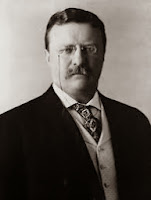"Still more hopeless is the promise of the manufacturing mania, "that it will make us independent of foreign nations," when combined with its other promise of providing a market for agriculture. The promise of a market, as we see in the experience of England, can only be made good, by reducing the agricultural class to a tenth part of the nation, and increasing manufacturers by great manufactural exportations. This reduction can only be accomplished by driving or seducing above nine-tenths of the agricultural class, into other classes, and the increase by a brave and patriotic navy. Discontent and misery will be the fruits of the first operation, and these would constitute the most forlorn hope for success in the second. By exchanging hardy, honest and free husbandmen for the classes necessary to reduce the number of agriculturalists, low enough to raise the prices of their products shall we become more independent of foreign nations? What! Secure our independence by bankers and capitalists? Secure our independence by impoverishing discouraging and annihilating none-tenths of our sound yeomanry? By turning them into swindlers, and dependents on a master capitalist for daily bread?
The manufacturing mania accuses the agricultural spirit of avarice and want of patriotism, whilst it offers to bribe it by a prospect of better prices, whittles down independence into cargoes of fancy goods, and proposes to metamorphose nine-tenths of the hardy sons of the forest into everything but heroes, for the grand end of gratifying the avarice of a capitalist, monied or paper interest"
John Taylor
(Arator: Essay 4)













.jpg)

.jpg)


